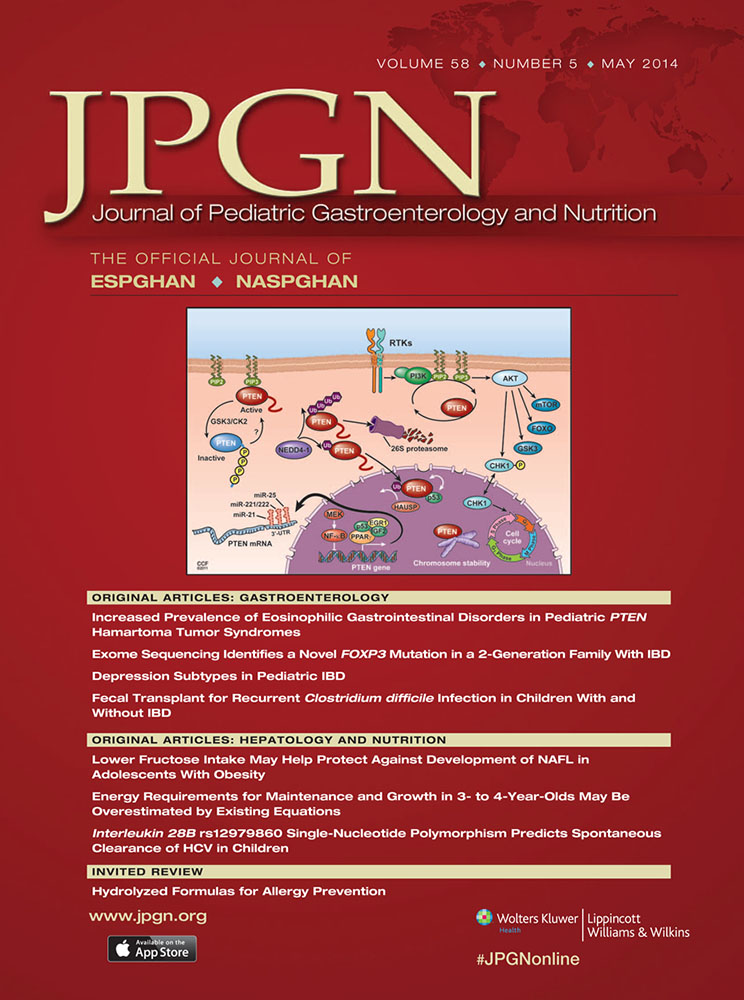Biological Therapy in a Pediatric Crohn Disease Population at a Referral Center
The authors report no conflicts of interest.
ABSTRACT
Objective:
The antitumor necrosis factor α (TNFα) antibodies infliximab and adalimumab are effective in inducing and maintaining remission in pediatric patients with Crohn disease (CD). The aim of the study was to evaluate the long-term efficacy and safety of biological therapy in pediatric patients with CD followed at a referral center.
Methods:
This work is a retrospective observational study enrolling patients with CD treated with infliximab or adalimumab beyond the induction protocol. The patients' data were collected from the unit's IBD database (maximum follow-up evaluation after 36 months of treatment). The efficacy was evaluated by the Pediatric Crohn Disease Activity Index score and by analysis of the cumulative probability of continuing therapy; the safety was assessed in terms of adverse events.
Results:
We enrolled 78 patients; the mean therapy duration was 27.2 ± 16.7 months, and the mean age at enrollment was 15 ± 3.1 years. The Kaplan-Meier analysis showed a cumulative probability of continuing therapy of 81%, 54%, and 33% at 1, 2, and 3 years, respectively, from the introduction of therapy. No association between the patients' baseline characteristics and the long-term outcome was found. The evaluation of the concomitant therapy with immunomodulators and anti-TNFα therapy versus anti-TNFα alone did not show a different outcome. No serious adverse events were recorded.
Conclusions:
The study indicates that biological therapy is effective and safe in pediatric patients with CD in a longer follow-up period. The response to treatment was not influenced by the patients' baseline characteristics or by the immunomodulator association.




